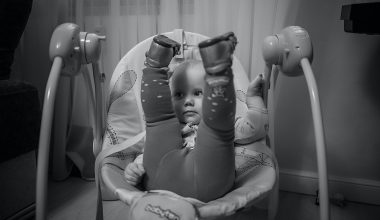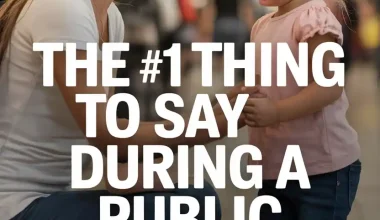There are a lot of things that breastfeeding parents need to take into consideration, including how often and for how long they need to breastfeed. There is also the question of how many hours it is okay to go without breastfeeding and/or pumping.
The amount of time you can go without breastfeeding varies drastically depending on your baby’s age. While newborns need to feed every 2-3 hours, healthy 6-month-old babies and above can safely go for 8 hours without breastfeeding.
When you think about it, it’s rather remarkable that a human baby can rely solely on a breastfeeding parent’s body for sustenance and nutrition. Breastfeeding is often said to be the healthiest and most natural way to feed a baby, and the many benefits of breastfeeding have been studied time and time again. But isn’t without its fair share of challenges.
Going 8 Hours Without Breastfeeding (Things to Know)
How Often Do You Need To Breastfeed?
It makes sense that breastfed babies will need to feed more frequently than their formula-fed peers, as breastmilk is much more easily digested than formula.
In the first day or two of life, a baby’s stomach is about the size of a marble and they only take in around half an ounce of colostrum per feed. With an exclusively breastfed newborn baby, you can expect them to feed between 8 and 12 times a day or every 2-3 hours for the first month.
Babies will need to feed frequently to keep up with their nutritional needs. Feed on demand and let your baby’s hunger cues guide you. Let them decide how often, for how long, and how much they need each feed to be. On-demand nursing will not create a spoiled baby, and you cannot overfeed a baby nursing at your breast.
As they get older and their stomach increases in size, they can consume more in a single feeding and will be able to go for longer periods in between feeds. They will begin forming their own feeding schedules, and you’ll be better able to predict when they need to feed next.
By the time a baby is 6 months old, they will be consuming 6-8 ounces of milk 4-5 times a day. At this age, going 8 hours without breastfeeding should be relatively safe. Don’t enforce this, though – if your baby wakes up hungry at night past this age, be sure to feed them right!
As long as your baby is healthy, is gaining weight steadily, and is producing an appropriate number of wet and/or dirty diapers in a day, there is no need to worry about sticking to rigid feeding schedules. Let them take charge of their feeding times.
How Long Can a Baby Sleep In Between Feedings?
Because their stomachs can only hold such a small volume of milk, the sleep/wake cycles of newborns are usually dictated by hunger, until their stomach capacity increases enough for them to develop a preference for longer sleep.
In the first 5-6 weeks of life, newborns should not be allowed to sleep for more than 4 hours at a time without feeding. Watch out for hunger cues such as lip licking and smacking, thumb sucking, rooting, and making sucking sounds or motions which your baby may exhibit before they are fully awake.
Eventually, your baby will need to feed less and less to get through the night. 3-4-month-old babies may need 3 overnight feedings in 12 hours, while 5-6-month-old babies may only need 0-2 overnight feedings in the same time period. 8-month-old babies can be expected to easily go 8 hours without breastfeeding, but that’s just the average here.
Some babies can go 8 hours without breastfeeding, sleeping through the entire night as early as the 3-month mark. Others might still wake up, needing to be breastfed, even when they’re already 9 months old! These tend to be the rare exceptions, thankfully.
Nighttime Weaning
Once your baby weans off of night feeding, going 8 hours without breastfeeding shouldn’t be too much of an issue. While there is no set age at which babies stop needing to feed overnight, there are some signs that your baby may be ready to wean off of overnight feeds.
As your baby’s digestive system matures, they will be able to consume all their caloric needs during the day and will therefore be less likely to get hungry at night. Past 6 months of age, many babies no longer need night feeds from a metabolic perspective.
Although they may still wake up and cry for you according to their overnight feeding schedule, hunger may not be their reason for waking up at all. It is more likely that your baby has become accustomed to their nighttime patterns of waking to feed and is using nursing as a way to soothe themselves back to sleep.
A few signs that your baby’s nighttime nursing has become a self-soothing and sleeping strategy rather than a response to hunger include:
- Falling asleep within 5 minutes of latching on. Your baby has associated sucking with comfort and sleep and may be using your breast to soothe themselves as if it were a pacifier.
- Eating a small amount relative to their daytime feedings. Your baby may nurse a little before proceeding to either fall asleep or act as if they want to play.
- Eating less than usual during the day. If your baby still wakes up a few times during the night to feed and is eating less than their usual amount during the day, it may be time to drop night feeds. Gradually reduce the number of overnight feeds and encourage them to consume the bulk of their calories during the day.
If you notice these signs during your baby’s night feeds, they may be ready to drop night feeds. Ensure that your baby is getting the appropriate amount of nutrition during the day and explore other options for self-soothing and learning independent sleep skills that don’t require nursing.
The key to dropping nighttime feeds is to do so gradually. It isn’t impossible to go cold turkey, but you would essentially be asking your child to skip a meal a day, which will undoubtedly make both of you miserable.
Instead, work on reducing the amount of time they spend at your breast or decreasing the amount of breastmilk in the bottle by an ounce per night feed. Giving your baby a “top-up” feed right before bed may also help decrease the likelihood of them waking up hungry at night.
Keep in mind that all babies mature at their own pace, and some babies may wean earlier or later than others.
Breastfed babies usually take longer to wean off of overnight feeds than formula-fed babies. There are also instances when a baby who has already weaned off of night feeds may need to return to night feeds, such as during growth spurts, sleep regressions, teething, and illness.
Your Milk Supply Has Been Well Established
Breastmilk is a baby’s primary source of nutrition until they are a year old, so it is important for breastfeeding parents to protect their milk supply through proper nutrition and regular expression.
As you may already know, breastmilk is produced based on basis of demand– the more frequently breastmilk is expressed, the more will be produced. On-demand nursing is encouraged, as it helps protect and maintain a good milk supply.
Going 8 hours without breastfeeding (or pumping) could also have other side effects. It may cause your breasts to become engorged, making them feel tight and painful. It can also contribute to issues such as mastitis and clogged ducts.
It takes 7-10 days of completely no breastfeeding or pumping to return to non-lactating hormone levels and for milk supply to dry up. But it’s best not to go more than 5-6 hours without pumping/nursing, especially in the first few months before a mature milk supply has been established.







